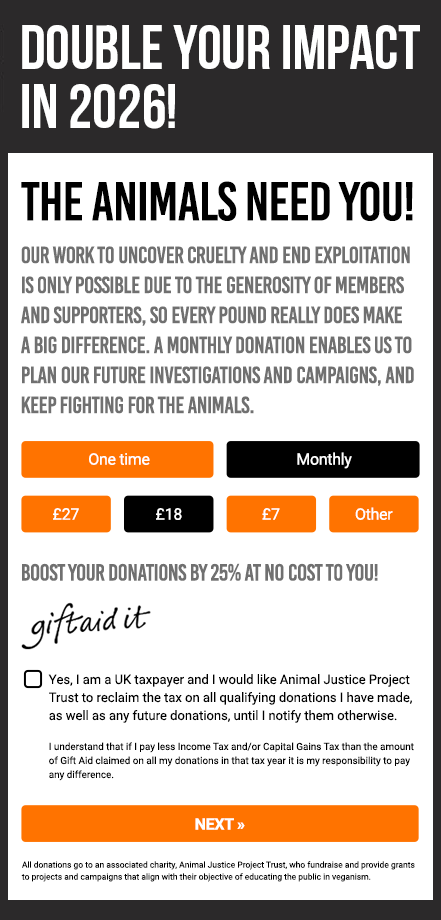
Exposed
What risks do intensive farms pose to other animals?

This World Wildlife Day, we’d like to bring attention to an environmental emergency that is growing in urgency: zoonotic disease.
In recent years, animal agriculture has finally been accepted as a leading cause of climate change and habitat destruction. Though many of us are aware that eating animals causes deforestation and contributes heavily to greenhouse gas emissions, we often forget to talk about emerging infectious diseases.
In recent months, a number of captive animals living in zoos have contracted coronavirus, bringing the disease to the forefront of the media in a new light.
A pair of white tiger cubs are thought to have died from coronavirus at the Lahore Zoo in Pakistan, leading us to realise just how dangerous the virus could be if it were to spread to ‘wild’ populations. Read the full story here.
Animal agriculture has a key role to play in the emergence of zoonotic diseases. Due to systematic artificial selection, we have populated animal farms with genetically modified cows, pigs and chickens. When breeding farmed animals, our priorities lie in production. The question has always been, how can we create an animal who will produce more milk, or more eggs, or more meat? This greed has lead us to breed animals into existence who are genetically identical, leaving their bodies with few defences against emerging viruses.
Furthermore, cramped conditions on intensive farms allow diseases to spread in the blink of an eye. On the average broiler chicken farm, birds are forced to live in small sheds with THOUSANDS of individuals, creating the ideal environment for pathogens to thrive.
It is only through the mass killing of farmed chickens and ducks across the UK that we have narrowly avoided an outbreak of avian flu in recent months. This particular disease is frighteningly mobile, with ‘wild’ birds migrating across seas every year having the potential to create an outbreak in a new location.
Thus far, control has been our only means of keeping many farm-born diseases at bay; what would happen if we could not control an infected population?
‘Livestock’ represent 60% of mammals on Earth, while ‘wild’ mammals account for just 4%. To feed the billions of animals that we farm and slaughter each year, we clear natural habitats at an alarming rate. When clearing these environments to grow plants for animal feed, we are increasingly coming into contact with ‘wildlife’. This newfound exposure is a threat to both human and animal life.
Many people are actually unaware that the HIV virus originated in chimpanzees and gorillas, spreading to human beings through the bushmeat trade. Since the 20th century, this particular disease has caused the deaths of over 10 million people.
If we continue to eat and exploit animals, we will be faced with further pandemics. Intensive farms are hotspots for zoonotic disease and the habitat destruction that facilitates said farms puts us in direct contact with threatened ‘wildlife’, creating the final catalyst that will spread disease through ‘wild’ and domestic populations. With ‘wild’ animal populations already dwindling, this is a likely scenario that we simply can’t afford to ignore.
Want to know more about animal agriculture and zoonotic diseases? Our ongoing EXPOSED: Cost of a Pandemic campaign promotes a plant-based diet with a clear message: eating animals causes pandemics. Find out more here.
As always,
For the animals.

.png)


.png)




.jpg)








.png)